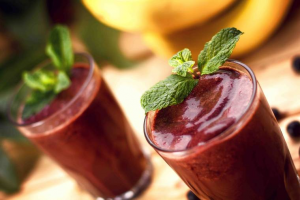 Our bodies convert a great deal of food energy every day and use this energy for many things including healing, creating or reducing inflammation, fighting off bacteria, fungi and viruses that don’t belong and running around the block. Wouldn’t it be great to have more energy and to know that the energy that you do have is being used for, well, energy? When we use less of our energy on inflammation, detox, digestion and repair we have more left to energize us for a marathon game of monopoly or running around the farmers’ market on a Saturday joyfully and enthusiastically.
Our bodies convert a great deal of food energy every day and use this energy for many things including healing, creating or reducing inflammation, fighting off bacteria, fungi and viruses that don’t belong and running around the block. Wouldn’t it be great to have more energy and to know that the energy that you do have is being used for, well, energy? When we use less of our energy on inflammation, detox, digestion and repair we have more left to energize us for a marathon game of monopoly or running around the farmers’ market on a Saturday joyfully and enthusiastically.
The following is a step-by-step to making sure that you are optimizing the energy from your foods so that you can rock your day full.
Step one: Eat foods that don’t zap your energy. For a full list of foods check out this week’s video “Foods for Energy” that demonstrates 12 foods to eat for energy. Foods that might zap energy are rich in toxins, sensitivities (unique to you) or foods that are just plain difficult to digest. Foods rich in toxins, that’s pretty straightforward… or is it? For me the solution to this is basically to avoid foods with labels as much as possible but it isn’t really limited to this. We each just have to do the best we can.

When buying produce I stick to organic as much as possible. I really notice a difference the less processed foods I consume. Foods that you are allergic to might include the top 5 of corn, soy, wheat, dairy and eggs but will be unique to you so if there is a food that you notice you usually feel exhausted after eating that may be a culprit for you. Testing or well designed elimination diets can help.
Lastly foods that are difficult to digest. Raw well chewed fruits and veggies are the easiest to digest for many people however depending on your situation you may find cooked veggies less irritating or easier to break down or you may be on a specific carbohydrate diet. Generally the more complex a food is the more complex digestion it requires causing energy to be diverted away from anything else and directed toward simply digesting foods. You likely already know which foods are difficult for your current system to digest.
Step two: Eat foods that give your body what it needs to heal. This 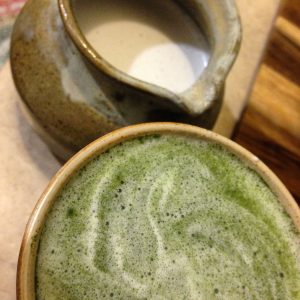 can be mineral rich foods and foods high in good fats and vitamins, in particular the Bs. If you are working on healing or nurturing a particular part of your body make sure that you are taking in the nutrients that you really need to do so. For example for adrenals it can be important to eat foods rich in vitamin C or for intestinal repair it can be important to have enough D3 and L-Glutamine (and C too). If our bodies are going to expend valuable energy to heal something let us help them by giving them what they need so that the healing can be quick and effective, afterward freeing up the energy for more fun uses.
can be mineral rich foods and foods high in good fats and vitamins, in particular the Bs. If you are working on healing or nurturing a particular part of your body make sure that you are taking in the nutrients that you really need to do so. For example for adrenals it can be important to eat foods rich in vitamin C or for intestinal repair it can be important to have enough D3 and L-Glutamine (and C too). If our bodies are going to expend valuable energy to heal something let us help them by giving them what they need so that the healing can be quick and effective, afterward freeing up the energy for more fun uses.
Step three: Eat foods that enable you to produce more energy right now. Some examples of this are green peas, squash, macadamia nuts and sunflower seeds. These are high in Thiamin or B1 which can help to increase energy and ATP production. Adequate B12 can also help by maturing your blood cells so that they can carry oxygen around the body more efficiently. It can be beneficial to consult an acid/alkaline food chart and aim to eat 80% from the alkalizing side. There is a good one here http://www.fhsblog.com/?p=135. One thing I find that helps me to feel energized is a good vegetable-only green juice. If you do not have sensitivities that prevent this you can try too. I can just feel the difference it makes in my energy levels all day as the minerals and the vitamins in there are so easily absorbed. This brings me to step four…
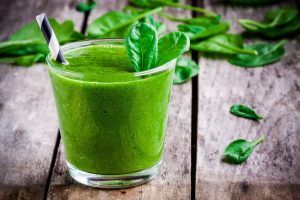 Step four: Optimize absorption so that you can actually digest all this good food. Not only will poor digestion cause unwanted side effects and waste energy for digestion but it will also reduce nutrient absorption. Poor digestion can lead to no-fun situations like “leaky gut” and small intestinal bacterial overgrowth. Whatever we don’t digest well will be digested by bacteria, often with unwanted side effects, inflammation and byproducts. Poor digestion can further contribute to if not cause auto-immune conditions. Nothing zaps a person’s energy like immune dysregulation trust me I’ve been there!
Step four: Optimize absorption so that you can actually digest all this good food. Not only will poor digestion cause unwanted side effects and waste energy for digestion but it will also reduce nutrient absorption. Poor digestion can lead to no-fun situations like “leaky gut” and small intestinal bacterial overgrowth. Whatever we don’t digest well will be digested by bacteria, often with unwanted side effects, inflammation and byproducts. Poor digestion can further contribute to if not cause auto-immune conditions. Nothing zaps a person’s energy like immune dysregulation trust me I’ve been there!
So what is “poor digestion” anyway? It could be so many things that it can get quite complicated. Good bacteria are an important part of optimizing digestion but not the only important thing. Stress can cause “poor digestion”, reduced vagal nerve function and so can insufficient stomach acid, the minerals needed to produce stomach acid or the minerals necessary to produce bile. You can reverse each of these by optimizing your stomach acid, the ph of your large and small intestines, healing leaky gut, eating a mineral rich diet and working through stress imbalances. Nothing has to be “fixed”, certainly not right away, we are not machines. Once the momentum starts to flow toward more energy and away from energy depletion it IS possible to feel better and better every day. Sometimes it takes a while for the body to catch up but do not lose hope.
Which foods are your go-to foods for energy? Let me know in the comments below 🙂
Read more

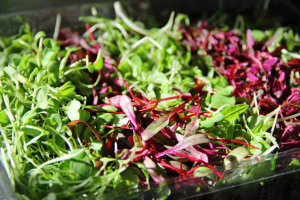


 can be mineral rich foods and foods high in good fats and vitamins, in particular the Bs. If you are working on healing or nurturing a particular part of your body make sure that you are taking in the nutrients that you really need to do so. For example for adrenals it can be important to eat foods rich in vitamin C or for intestinal repair it can be important to have enough D3 and L-Glutamine (and C too). If our bodies are going to expend valuable energy to heal something let us help them by giving them what they need so that the healing can be quick and effective, afterward freeing up the energy for more fun uses.
can be mineral rich foods and foods high in good fats and vitamins, in particular the Bs. If you are working on healing or nurturing a particular part of your body make sure that you are taking in the nutrients that you really need to do so. For example for adrenals it can be important to eat foods rich in vitamin C or for intestinal repair it can be important to have enough D3 and L-Glutamine (and C too). If our bodies are going to expend valuable energy to heal something let us help them by giving them what they need so that the healing can be quick and effective, afterward freeing up the energy for more fun uses. Step four: Optimize absorption so that you can actually digest all this good food. Not only will poor digestion cause unwanted side effects and waste energy for digestion but it will also reduce nutrient absorption. Poor digestion can lead to no-fun situations like “leaky gut” and small intestinal bacterial overgrowth. Whatever we don’t digest well will be digested by bacteria, often with unwanted side effects, inflammation and byproducts. Poor digestion can further contribute to if not cause auto-immune conditions. Nothing zaps a person’s energy like immune dysregulation trust me I’ve been there!
Step four: Optimize absorption so that you can actually digest all this good food. Not only will poor digestion cause unwanted side effects and waste energy for digestion but it will also reduce nutrient absorption. Poor digestion can lead to no-fun situations like “leaky gut” and small intestinal bacterial overgrowth. Whatever we don’t digest well will be digested by bacteria, often with unwanted side effects, inflammation and byproducts. Poor digestion can further contribute to if not cause auto-immune conditions. Nothing zaps a person’s energy like immune dysregulation trust me I’ve been there!
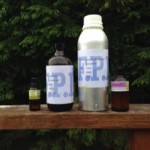
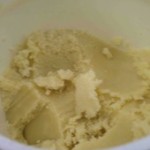
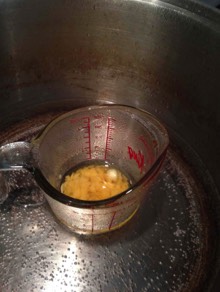

 they form a thick paste
they form a thick paste





